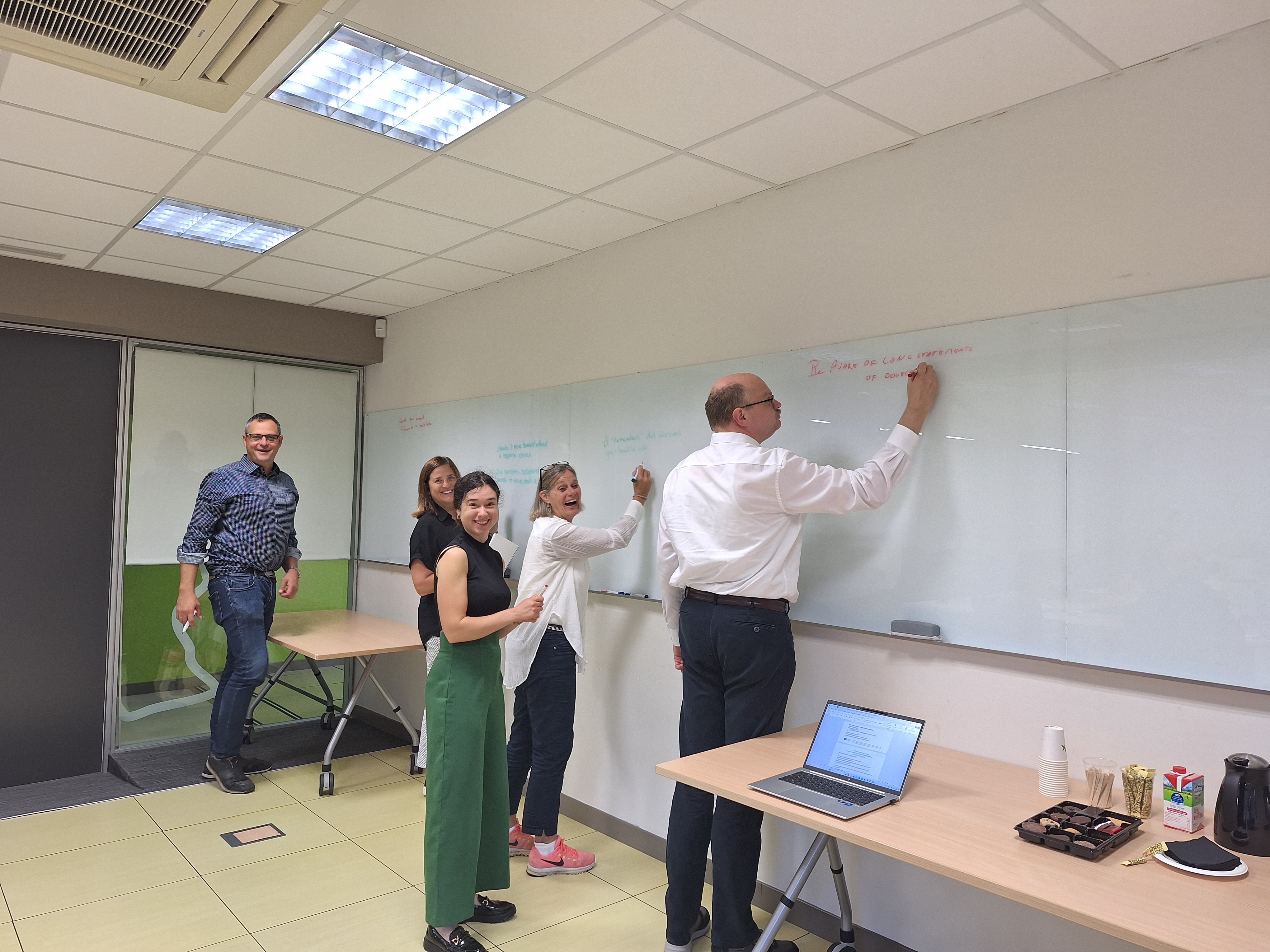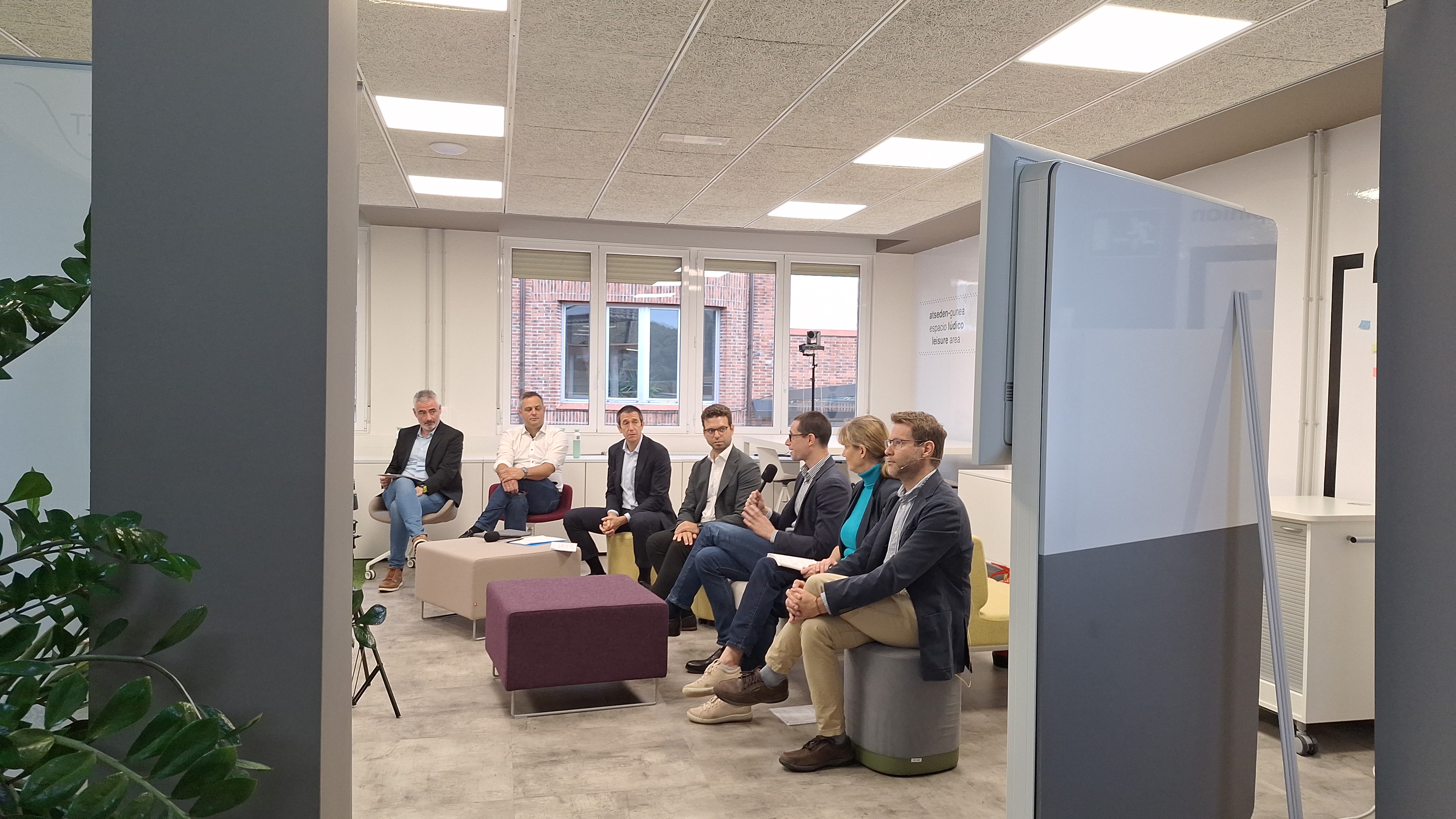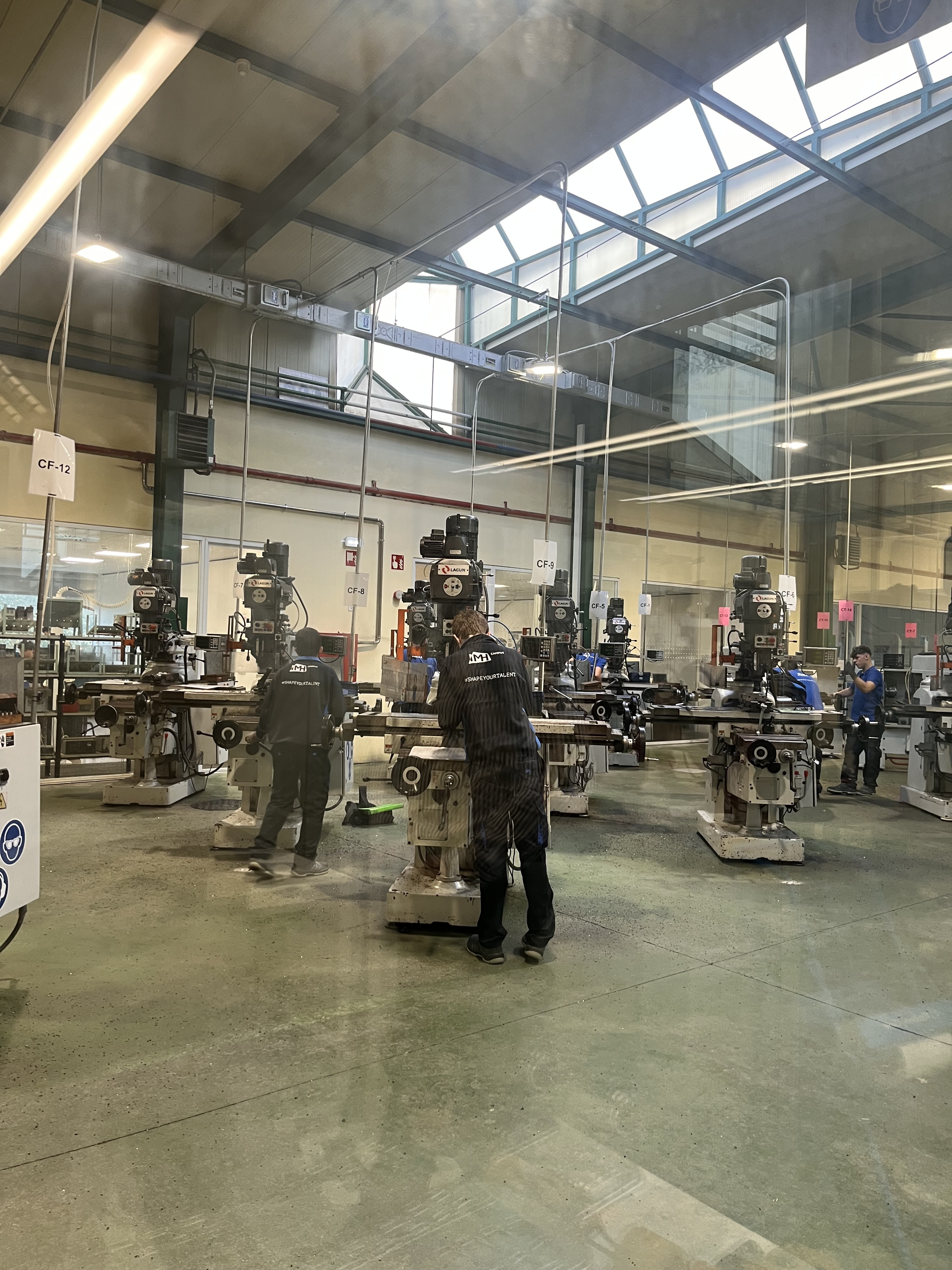Final AIRinVET Consortium Meeting at TKNIKA
From October 15th – 18th, we - the AIRinVET consortium - gathered at TKNIKA in San Sebastian (Basque Country/Spain) for our final meeting, together with around 10 external stakeholders. This event marked a significant milestone in our journey, as we focused on discussing the roadmap, the self-assessment tool, and our recommendations for the vocational education and training (VET) system in Europe and beyond. These insights are aimed at policymakers at both the national and EU levels, striving to enhance the quality and impact of VET globally.
 On the first day, we carried out a group review activity, where we tested the tools developed by us with experts from other institutions familiar with vocational education and research. We were pleased to welcome participants from CIFP Don Bosco LHII, NBCC, the Challenger project (Šolski center Kranj), the Barcove project (Projar Group), and, online, the Nearvet project (Dimitra Education). Their feedback was crucial in refining our tools for future use.
On the first day, we carried out a group review activity, where we tested the tools developed by us with experts from other institutions familiar with vocational education and research. We were pleased to welcome participants from CIFP Don Bosco LHII, NBCC, the Challenger project (Šolski center Kranj), the Barcove project (Projar Group), and, online, the Nearvet project (Dimitra Education). Their feedback was crucial in refining our tools for future use.
 On the second day, we organised a live-streamed event on YouTube. The session included several segments. It began with a presentation by EACEA, followed by a discussion on the current state of innovation and research, including barriers and incentives for development. The session continued with presentations from the AIRinVET, BARCOVE, and CHALLENGER projects, all working at the European level, and concluded with a roundtable discussion involving project partners and invited experts. This discussion explored the future of innovation and research in vocational training, featuring representatives from companies, vocational training centres, universities of applied sciences, and consultancies. These diverse participants, all key players in the innovation ecosystem, offered varied perspectives. The symposium will soon be available on our website and YouTube channel, ensuring it is accessible to a wider audience.
On the second day, we organised a live-streamed event on YouTube. The session included several segments. It began with a presentation by EACEA, followed by a discussion on the current state of innovation and research, including barriers and incentives for development. The session continued with presentations from the AIRinVET, BARCOVE, and CHALLENGER projects, all working at the European level, and concluded with a roundtable discussion involving project partners and invited experts. This discussion explored the future of innovation and research in vocational training, featuring representatives from companies, vocational training centres, universities of applied sciences, and consultancies. These diverse participants, all key players in the innovation ecosystem, offered varied perspectives. The symposium will soon be available on our website and YouTube channel, ensuring it is accessible to a wider audience.
In the afternoon, we held a session on forward-looking recommendations, focusing on strategic perspectives and future directions for vocational education and innovation. This discussion aimed to outline clear steps and strategies for the evolution of the VET sector.
These two days at TKNIKA were an engaging and insightful experience, bringing together key players in vocational education to collaborate and drive innovation forward. We want especially to say thanks to the project officer Grégoire Douxchamps from EACEA, Nataša Kristan from the Challenger project, Juan Manuel Mondèjar from the BARCOVE project, Miren Canellada from CIFP Don Bosco LHII, and Vaso Anastasopoulos from NEARVET project whose presence and contributions enriched our discussions.
After the activities wherein the external stakeholders participated, we had a project internal meeting on the third day, to discuss how we will perform the activities to reach the last milestones and goals of our project and how to finalise it in terms of the received grant. We took also a significant amount of time on making the results sustainable, bring them in use and which possible follow-up projects helps hereby.
 On the fourth and final day, we had a visit to our partner IMH Campus, the educational institute for advanced manufacturing in the Basque Country to see how the topics were AIRinVET is working on, work in practice.
On the fourth and final day, we had a visit to our partner IMH Campus, the educational institute for advanced manufacturing in the Basque Country to see how the topics were AIRinVET is working on, work in practice.
In the coming months, we will publish the reports on the roadmap and the policy recommendations, and the self-assessment tool on our website, ensuring these valuable resources are accessible to all stakeholders committed to advancing VET education.




Subscribe to our newsletter